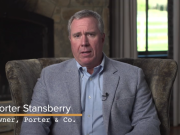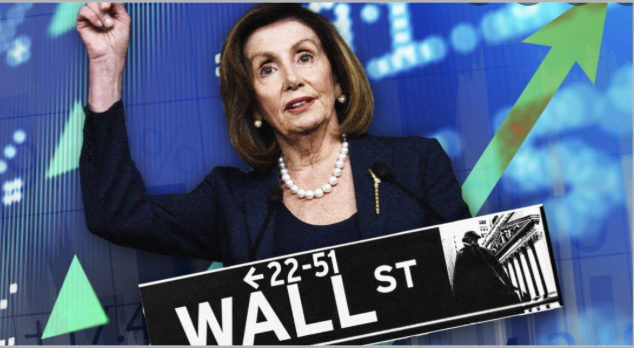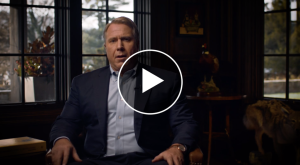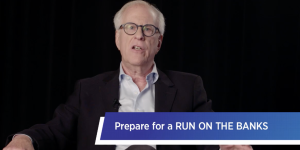The stock market is suffering through its worst year in decades. Since hitting their all-time highs between mid-November and early January, the S&P 500, the Dow, and the Nasdaq Composite have plunged as much as 26%, 22%, and 35%, respectively. But every cloud has its silver lining. Eventually, every bear market throughout history has represented an opportunity for patient investors looking to pick up shares in desirable names at bargain prices. The question isn’t “if” you should be looking for stocks to buy, but “which” stocks to buy.
Amid unrelenting inflation and a strong potential for a recession, volatility is widely expected to continue as we head into the new year, making the job of selecting stocks difficult. A logical move in times like these is dividend stocks, which pay you just to hold them. Dividend-paying companies regularly reward investors directly with a portion of the cash flow. The most desirable dividend stocks have a history of raising payouts over time as the company’s profits grow. In this list, we’ll look at three high-yielding stocks that seem ripe for the picking as we head into the new year.
Anyone who has kept tabs on the global supply chain and shipping saga that’s been unfolding since the outbreak of covid is probably familiar with Genco Shipping (GNK). The company owns a fleet of 44 ships it leases for dry bulk transportation of goods like grain, coal, and iron ore. The going rate to rent one of Genco’s ships is no less than $27,000 per day, which provides some solid cash flow that the company uses to reward its shareholders.
Dry bulk shipping rates, along with GNK’s share price, have fallen in recent months. Still, as China recovers from recent lockdowns and seasonal demand is expected to be strong, it’s hard to see the pullback in share price as anything less than an opportunistic bargain.
GNK pays a handsome 14.8% dividend yield. The share price is up 6% over the past month. The company will be looking to display strength ahead of its November 2nd earnings release. The company is expected to report EPS of $0.88, down 38.89% from the prior-year quarter. Meanwhile, the latest Zacks consensus estimate is calling for revenue of $91.06 million, down 22.47% from the prior-year quarter.
Pioneer Natural Resources Company (PXD) has long viewed sustainability as a balance of economic growth, environmental stewardship, and social responsibility. Its emphasis is on developing natural resources in a manner that protects surrounding communities and preserves the environment.
In the wake of the pandemic, when energy prices were cheap, PXD struck an almost perfectly timed agreement to buy fellow Permian Basin producer Parsley Energy for $4.5 billion. If you’re wondering how PXD managed to finance that transaction, the answer lies in the fact that it was an all-stock deal that ensured Pioneer didn’t have a new giant debt load hanging over its head. The fact that Parsley operated primarily in the same region of West Texas, where Pioneer had both expertise and existing staff, has paid off over time.
That deal was a coup for Pioneer shareholders, built on the fact it was large and well-capitalized at a time when stressed and debt-reliant shale plays were looking for a white knight. On top of that acquisition, PXD also boosted its dividend by 25% at the start of the year as further evidence of its strong balance sheet.
In the second quarter, revenue was up 64% YOY to $7.01 billion. The company reported earnings of $9.36 per share, beating consensus expectations of $8.80 per share. So far, in 2022, the company has rewarded its investors handsomely with $19.73 per share through its generous 8.48% cash dividend. Even after gaining 31% this year, Pioneer shares likely still have valuation upside in addition to their tremendous dividend income potential.
The average rate on a 30-year fixed-rate mortgage surged to nearly 7% last week, its highest level in over 20 years, according to Freddie Mac. Mortgage rates have more than doubled since the start of the year when the average 30-year mortgage stood at 3.11%.
Things couldn’t get much worse for mortgage REITs as the Fed’s hawkish monetary policy has caused short-term borrowing rates to soar. However, AGNC Investment (AGNC) should benefit from higher interest rates over time. While Fed policy has raised short-term borrowing costs, it’s also boosting the yields on the mortgage-backed securities that AGNC is stocking up on.
The REIT boasts a robust and well-safeguarded portfolio. Based on preliminary third-quarter results from the company, it ended September with an investment portfolio totaling $61.5 billion, of which only $1.7 billion was credit-risk transfer assets. Almost the entire portfolio is composed of agency assets, which are protected by the federal government in the event of default. There’s a lot of safety built into AGNC’s supercharged 18% yield. AGNC pays its dividend monthly and has averaged double a digit yield in 12 of the past 13 years.
The consensus expects the REIT to post quarterly earnings of $0.71 per share in its October 24th report, representing a year-over-year decline of 5.3%. The consensus EPS estimate has increased by 12% over the past month leading up to the call. Revenues are expected to be $289.1 million, down 34.7% from the year-ago quarter.
Read Next: America is going mad—is this next?
America is definitely going a little mad…
Some states are threatening to break away. The rich are fleeing. The wealth gap is soaring.
According to a recent article in the New York Times, people are driving more recklessly than ever… and drinking more alcohol than ever too.
And that’s just the beginning…
Altercations on airplanes are now at all-time highs. So are murder rates. And violent crime is soaring across the board. Students are more disruptive than ever. Hate crimes have hit a 12-year high, according to the FBI.
The question of course is:
Where is this all headed… and what’s coming next?
Well, one of the wealthiest and most successful entrepreneurs in America has a very clear answer you’re unlikely to hear anywhere else…
Bill Bonner is a 73-year-old son of a tobacco farmer, who now owns six large properties in South America, Central America, and the U.S… plus three in Europe.
Bonner is also one of the most humble and thoughtful men in the world today. He’s the author of three New York Times bestsellers… and has built several homes with his own hands, using ancient building techniques.
I’m telling you about Bonner today because has just come forward with an important message…
What he calls: His 4th and Final Warning.
It’s worth paying attention to, because Bonner has made 3 other big macro-economic predictions in his career… and each one proved to be exactly right.
Today, Bonner says we are headed towards a very difficult period in the U.S.… one of our most difficult times ever… which will result in something he calls: “America’s Nightmare Winter.”
What does that mean, exactly—and how could it affect you and your money?
Bonner doesn’t claim to have all the answers–but he recently went public with the fascinating analysis, recorded at his 60-acre property overlooking one of Europe’s most beautiful rivers.
He says:
“I believe it falls on someone like me to warn people… clearly… and without distraction.
“I can do this now because I’m too rich to care about money… and too old to care about what anyone says about me.”
And in this analysis, Bonner explains exactly how he believes this difficult period will play out, and even more important: The 4 Steps every American should take right now to prepare.
Get the facts.
Learn how to protect yourself and get a peek inside Bonner’s spectacular European property.
We’ve posted Bonner’s full analysis and his 4 recommended steps on our website.
You can view it free of charge here…
You might also like:
- Bank bailout a cover-up for a far worse plot?
- Surprising twist gives Biden landslide election win?
- The Two Men Destroying America
- “Future Fuel” will unleash $11 trillion wave of wealth
- This “peeing car” is at the center of an $11.7 trillion energy revolution
- The End Of The US Dollar
- Get Your Money Out of U.S. Banks Immediatley





















 and then
and then